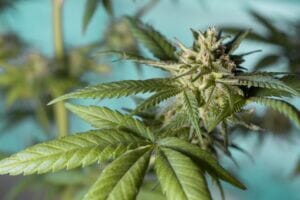Alcohol abuse remains a significant public health concern globally. Millions of individuals grapple with its detrimental effects on physical, mental, and social well-being. Traditional treatments and interventions exist for alcohol abuse.
However, emerging research suggests that CBD (cannabidiol) drinks may offer a promising avenue for individuals seeking alternatives to manage alcohol abuse. According to Globe Newswire, the global CBD-infused beverages market grew to $4.52 billion in 2022. What’s astonishing is that it is expected to grow at a CAGR of 25.6% from 2023 to 2031.
In this article, we delve into the potential of CBD drinks in addressing alcohol abuse. The article explores the science behind CBD, its effects on the body, and its role as a potential therapeutic agent.
Understanding Alcohol Abuse
Alcohol abuse is characterized by excessive consumption of alcoholic beverages. It can lead to negative consequences such as impaired judgment, addiction, liver disease, and social dysfunction.
Despite widespread awareness of its risks, many individuals struggle to overcome alcohol dependence due to various factors. Some of these factors include genetic predisposition, social influences, and underlying mental health issues. According to NIH, a survey shows that almost 29.5 million people aged 12 years and older had alcohol use disorder in 2022.
Traditional Treatment Approaches
Traditional treatment methods for alcohol abuse encompass a range of strategies aimed at addressing the physical, psychological, and social aspects of the disorder. One of the primary methods is detoxification, which involves supervised withdrawal from alcohol to manage potentially severe withdrawal symptoms. This procedure could take place in an outpatient or inpatient environment, based on the degree of the person’s dependency and any related health risks.
Following detoxification, many individuals participate in rehabilitation programs, which can take various forms, such as inpatient, outpatient, or residential treatment centers. Inpatient programs typically provide a structured environment where individuals receive intensive therapy, medical supervision, and support from healthcare professionals. Outpatient programs offer flexibility for those who cannot commit to full-time residential care but still require therapy and support to maintain sobriety.
Behavioral therapies are integral components of alcohol abuse treatment. Cognitive-behavioral therapy (CBT) helps individuals identify and change unhealthy patterns of thinking and behavior related to alcohol use.
It equips them with coping skills to manage triggers and cravings, enhance problem-solving abilities, and build resilience against relapse. Additionally, motivational interviewing (MI) focuses on exploring and resolving ambivalence about change, helping individuals find intrinsic motivation to pursue sobriety.
The Role of CBD in Alcohol Abuse Treatment
CBD, a psychoactive compound found in cannabis plants, has gained attention for its potential therapeutic properties. This includes the ability to modulate the endocannabinoid system (ECS). The ECS regulates physiological processes such as mood, appetite, pain perception, and stress response. These are all implicated in alcohol abuse and addiction.
CBD interacts with cannabinoid receptors in the ECS, particularly CB1 and CB2 receptors, exerting modulatory effects on neurotransmitter release, inflammation, and neuronal excitability. These mechanisms suggest that CBD may influence the reward pathways associated with alcohol consumption and mitigate the adverse effects of excessive drinking.
According to Drink Delta, hemp drinks with less than 0.3% THC have far fewer negative impacts on your health. In fact, CBD drinks can help improve your overall well-being. Several studies prove the health benefits of medicinal CBD. CBD drinks are made from similar components and usually do not have concentrated THC content. This makes them beneficial for your health.
Therefore, it is advised that if you are facing problems with alcohol abuse, you should at least try a CBD drink as an alcohol alternative. It can help you get the kick you want without the potential health damage. Thus, you will be able to relax and unwind without worrying about your liver or your excessive alcohol consumption problems.
Potential Benefits of CBD Drinks
CBD drinks typically contain a measured dose of CBD infused into various beverages such as water, tea, or sparkling beverages. Thus, they offer a convenient and discreet way to consume CBD.
Unlike traditional forms of CBD administration, such as oils or capsules, CBD drinks provide rapid onset of effects and increased bioavailability. This makes them an attractive option for individuals seeking immediate relief from cravings or anxiety associated with alcohol withdrawal.
However, it is also vital to read the ingredients of a CBD drink. According to Forbes, one bottle of CBD water contains about 10 milligrams of CBD. Research studies exploring the effects of CBD on alcohol abuse have yielded promising results.
Preclinical studies in animal models have demonstrated that CBD administration reduces alcohol intake and attenuates alcohol-induced neurotoxicity. A study from ScienceDirect shows that CBD can regulate behavioral and brain alterations occurring from alcohol withdrawal. Therefore, it can help prevent the urge to consume alcohol.
Furthermore, CBD exhibits anxiolytic (anxiety-reducing) and neuroprotective properties, which may be particularly beneficial for individuals undergoing alcohol detoxification or experiencing withdrawal symptoms. By modulating neurotransmitter systems involved in stress and anxiety, CBD may help alleviate the psychological distress associated with alcohol cessation.
Safety and Considerations
It is important to note that while CBD shows promise as a therapeutic agent for alcohol abuse, its safety profile may vary. It can depend on individual factors such as dosage, route of administration, and underlying health conditions.
Additionally, CBD may interact with certain medications metabolized by the cytochrome P450 enzyme system. This highlights the importance of consulting with a healthcare professional before incorporating CBD into one’s treatment regimen. This is especially true for individuals with pre-existing medical conditions or those taking prescription medications.
As stated by Drugwatch, if someone takes antidepressants and also uses cannabidiols, the combined effect can slow down metabolism. This can lead to very high concentrations of the drug in the body.
Moreover, the regulatory landscape surrounding CBD products remains complex and evolving, with varying legality and quality standards across jurisdictions. Consumers should exercise caution and purchase CBD products from reputable manufacturers that adhere to stringent quality control measures.
In conclusion, CBD drinks represent a novel and potentially valuable adjunctive therapy for individuals struggling with alcohol abuse. By harnessing the therapeutic properties of CBD, these beverages offer a promising avenue for reducing alcohol consumption, alleviating withdrawal symptoms, and supporting long-term sobriety.
However, further research is warranted to elucidate the optimal dosing strategies, safety profile, and long-term efficacy of CBD. As our understanding of CBD continues to evolve, it is essential to approach its use in alcohol abuse treatment with careful consideration. In the journey towards recovery from alcohol abuse, CBD drinks may serve as a beacon of hope. It can offer individuals a holistic and personalized approach to healing and transformation.




